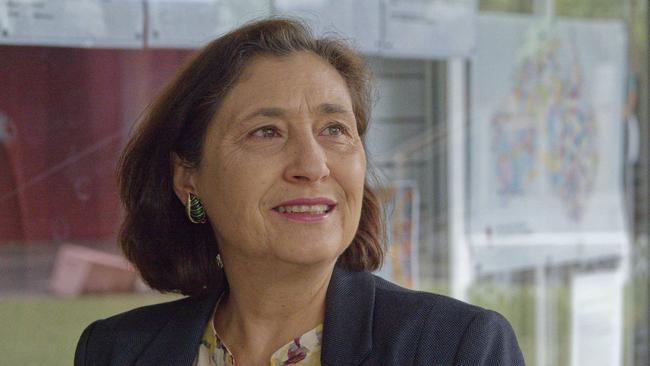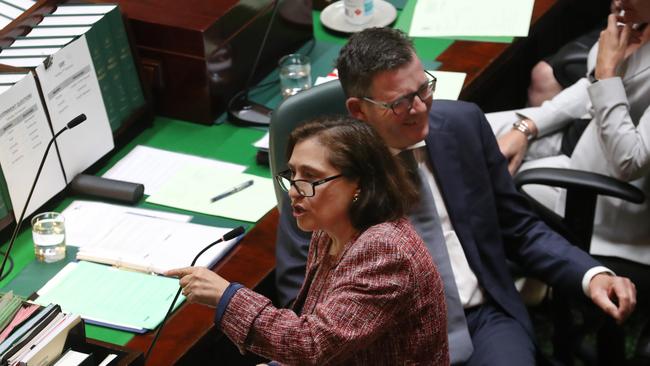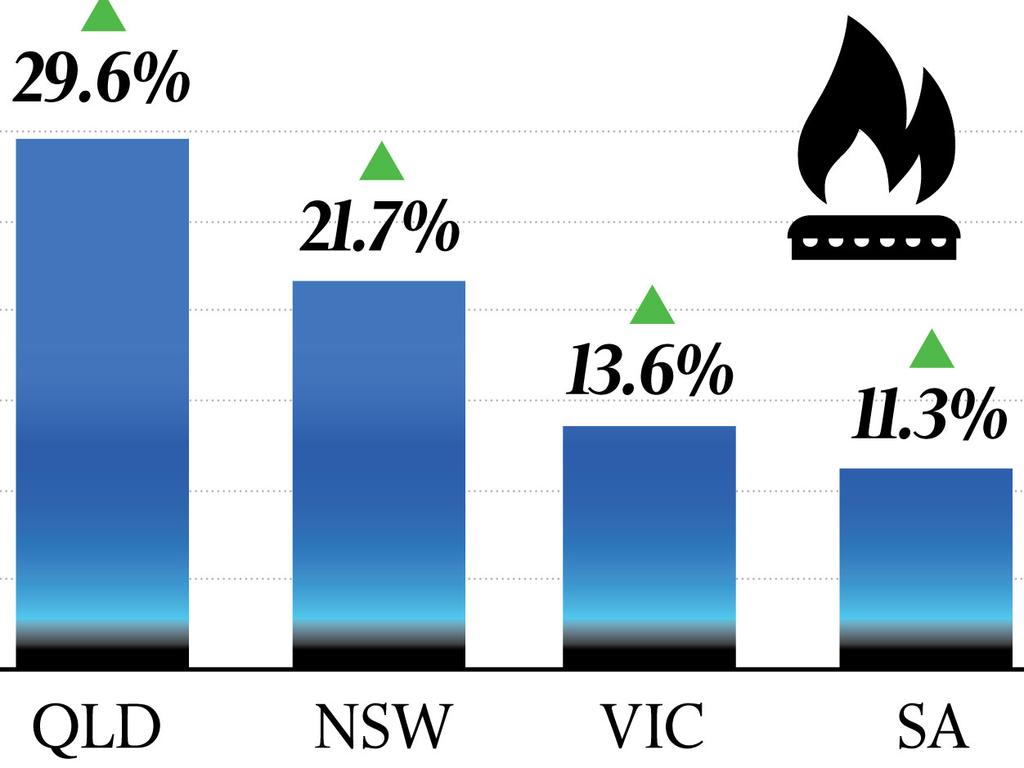Doubts over veracity of Victoria’s gas roadmap modelling
Lily D’Ambrosio says Victorian households can save $1700 a year by replacing gas appliances with electrical ones, but the total average Victorian gas bill is less than $1600.

Gas industry bodies have expressed serious doubts over the veracity of modelling underpinning Victoria’s gas substitution road map.
Energy Minister Lily D’Ambrosio has spruiked savings of $1700 a year for existing households replacing gas appliances with electric ones, despite that figure being higher than the total average annual household gas bill in the state.
Ms D’Ambrosio unveiled an update to the road map on Thursday, confirming the government will expand the Victorian Energy Upgrades program to provide discounts for electric induction cooktops, and that gas appliance manufacturers will be banned from offering rebates to customers buying new gas appliances.
On Tuesday, St Vincent de Paul Society general manager of policy and research Gavin Dufty told The Australian the expansion of the VEU program would see poor Victorians subsidise the cooktop upgrades of wealthier homeowners.
Last month, the gas appliance industry warned the ban on rebates, coupled with the government’s planned ban on gas connections to all new Victorian homes requiring a building permit from January 1, will cost 1300 jobs within six to 12 months.
The minister on Thursday said the government would conduct a regulatory impact statement in 2024, to consult on expanding the gas connection ban to all new residential and some commercial buildings. It also plans to assess the costs and benefits of requiring households and some commercial buildings to replace gas appliances with electric ones at the end of their lives.
Hospitality, large commercial and industrial and manufacturing businesses will be exempted.

Ms D’Ambrosio said the government would also review minimum energy efficiency standards for rental homes, including ceiling insulation, draught-sealing, hot water, heating and cooling.
“Existing households that go all-electric can save $1700 a year, or up to $2700 a year with solar installed – a 60 per cent reduction in energy bills,” the minister said.
Just last month, a spokeswoman for the minister said: “Households that go all-electric can save $1400 a year, or up to $2700 a year with solar installed – or a 60 per cent reduction in your energy bills.” Ms D’Ambrosio did not explain the discrepancy on Thursday, saying she was “happy to have a (look at) what the context of that comment was”.
Asked whether she could provide details of who had done the modelling and what underlying assumptions it had been based on, Ms D’Ambrosio said: “Well, all these have been tested by the department, and all of the modelling is done according to the strictest of principles, and that is robust.”
While Victorians’ gas bills have increased by $500, or 35 per cent, over the past two years, the average cost of the Victorian Default Offer for electricity has also increased by $413, or 30.8 per cent, over the same period.
The Australian Pipelines and Gas Association said it had “considerable concerns” around the basis for the modelling.
“This internal modelling by the … government has not been made publicly available, with the VGSR predominantly citing third-party organisations to support its decision-making,” AGPA chief executive Steve Davies said.
“The … government’s purported savings of $1700 per annum is higher than the estimated average gas bill for Victorians as noted in the Australian Energy Regulator’s State of the Market report, released in October 2023. The market offer for all three gas networks is less than $1600. It is unclear how Victorian households can save more than the total of their average annual gas bill.”








To join the conversation, please log in. Don't have an account? Register
Join the conversation, you are commenting as Logout